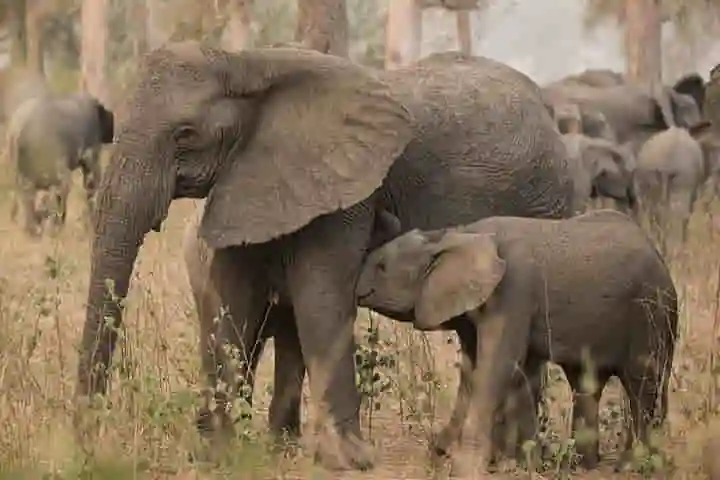Without realising, human beings by their reckless act of killing elephants indiscriminately has resulted in an increase in the number of tuskless animals. This is what has transpired in Mozambique as a result of poachers' excessive hunting, said a study, according to a report in sciencenews.org.
In a period of strife from 1977 to 1992 – called the Mozambican Civil War – the armed forces killed animals, including elephants for food and ivory. The number of the pachyderms was reduced by more than 90 per cent in Mozambique’s Gorongosa National Park.
A careful observation of the video clippings and footage and images show that with the decrease in the numbers, the percentage of the female savanna elephants (Loxodonta africana) went up from about 18 to 51 per cent.
A report published on October 22 in Science pointed that years of careless slaughter of elephants have rendered the tuskless ones at a more advantageous position from the point of view of evolution in Gorongosa. This has prompted an increase of females without tusks who have two tooth genes which are mutated, said the researchers in the report.
Sharing their views on this, Shane Campbell-Staton, an evolutionary biologist at Princeton University and his colleagues said the quick decimation of tusked individuals has changed in two decades the makeup and traits of the elephant population. What is alarming is that this trait of being tuskless is heritable and this evolutionary change will possibly be continued for many generations even if there is a reduction in poaching or its complete halt.
Also read: Now Elephants in Sri Lanka will have biometric ID cards!
Continuing with their study, the researchers also examined the genetic make-up and information of 18 tusked and tuskless females and discovered two genes with widespread mutations in the tuskless females. The change in one of these genes in human beings can lead to brittleness of tooth and also absence of a pair of upper incisors – what Cambell-Staton referred to as the “anatomical equivalent of tusks”.
It is important to note that aberration in the protein product of the other gene can give rise to malformation of the tooth root and tooth loss.
Campbell-Staton observed that poaching “changing the course of evolution” in Gorongosa’s elephants, can have a resounding effect on the ecosystem, more so considering that these animals have a dramatic bearing and impact on their surroundings.
Also read: Arrival of male twins cheers Sri Lanka’s elephant orphanage
Highlighting the serious issues arising for elephants being tuskless, Campbell-Station said: “[Tusks are] not just ornamental. They serve a purpose.” Giving an example of how tusks are used by the animals to dig for water and strip tree bark for food he poses a pertinent and vital question: “If an elephant doesn’t have the tool to do those things, then what happens?”




















